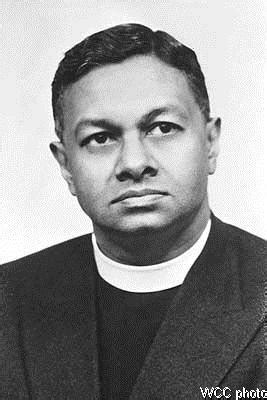A Quote by Soren Kierkegaard
It was not to save a nation that Abraham went to sacrifice Isaac, nor to appease angry gods... Then why does Abraham do it? For God's sake... He does it for the sake of God because God demands proof of his faith... He was not justified by being virtuous, but by being an individual submitted to God in faith.
Related Quotes
When a man has offered in sacrifice all that he has for the truth’s sake, not even withholding his life, and believing before God that he has been called to make this sacrifice because he seeks to do his will, he does know, most assuredly, that God does and will accept his sacrifice and offering, and that he has not, nor will not seek his face in vain.
Why does anyone do anything? Belief. A belief that they are right and just in their actions. Abraham was willing to sacrifice his son, Isaac, because he believed that God had commanded it. To kill your son is unthinkable. A crime. But if you are acting in the belief that your God, your supreme deity whom you must obey, has demanded it of you, is it still a crime?
Everyone knows the beautiful story of Abraham and the sacrifice of Isaac. How this noble father led his child to the slaughter; how Isaac meekly submitted; how the farce went on till the lad was bound and laid on the altar, and how God then stopped the murder, and blessed the intending murderer for his willingness to commit the crime.
People think of faith as being something that you don't really believe, a device in helping you believe simply it. Of course that is quite wrong. As Pascal says, faith is a gift of God. It is different from the proof of it. It is the kind of faith God himself places in the heart, of which the proof is often the instrument... He says of it, too, that it is the heart which is aware of God, and not reason. That is what faith is: God perceived by the heart, not be reason.
I think enormous harm is done by religion - not just in the name of religion, but actually by religion. ... Many people do simply awful things out of sincere religious belief, not using religion as a cover the way that Saddam Hussein may have done, but really because they believe that this is what God wants them to do, going all the way back to Abraham being willing to sacrifice Isaac because God told him to do that. Putting God ahead of humanity is a terrible thing.
The chief difficulty is that God demands of us that we live by faith: faith in God, God's sovereignty over the future, God's sufficiency for the present; while, on the other hand, the various other gods whom we can serve appeal to us in terms of the things which we can see and the forces which we can calculate. The choice between the life of faith and the life of sight is a choice between a God whom only faith can apprehend and gods whom one has only to see to understand.
Everything is in it: the promise and the hope and the fear and the challenge and the defiance. The test is a double test: Just as God tested Abraham, Abraham tested God: "Let's see if you really want me to go ahead with it and kill my son." Then the angel says, "Do not raise your hand against the boy" [Genesis 22:12]. It was the Angel of God who says this, not God. God was embarrassed. [All laugh]
There are two gods. The god our teachers teach us about, and the God who teaches us. The god about whom people usually talk, and the God who talks to us. The god we learn to fear, and the God who speaks to us of mercy. The god who is somewhere up on high, and the God who is here in our daily lives. The god who demands punishment, and the God who forgives us our trespasses. The god who threatens us with the torments of Hell, and the God who shows us the true path.
There are two gods. A god who casts us off because of our sins, and a God who calls to us with His love.
It is precisely women’s experience of God that this world lacks. A world that does not nurture its weakest, does not know God the birthing mother. A world that does not preserve the planet, does not know God the creator. A world that does not honor the spirit of compassion, does not know God the spirit. God the lawgiver, God the judge, God the omnipotent being have consumed Western spirituality and, in the end, shriveled its heart.
Feuerbach ... recognizes ... "even love, in itself the truest, most inward sentiment, becomes an obscure, illusory one through religiousness, since religious love loves man only for God's sake, therefore loves man only apparently, but in truth God only." Is this different with moral love? Does it love the man, this man for this man's sake, or for morality's sake, for Man's sake, and so-for homo homini Deus-for God's sake?







































